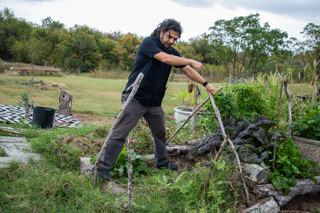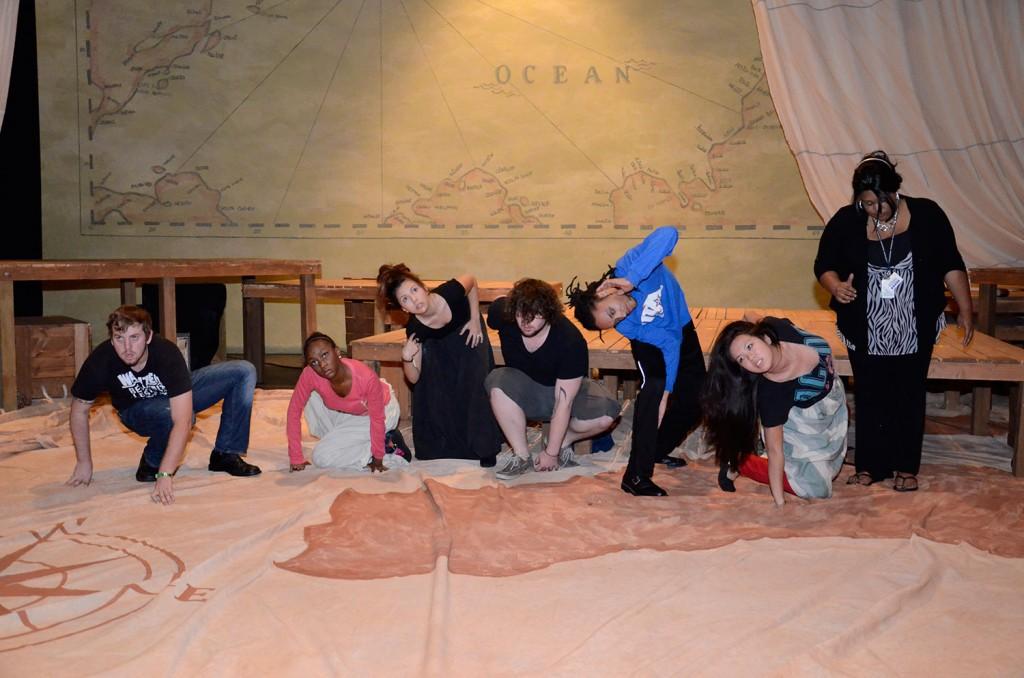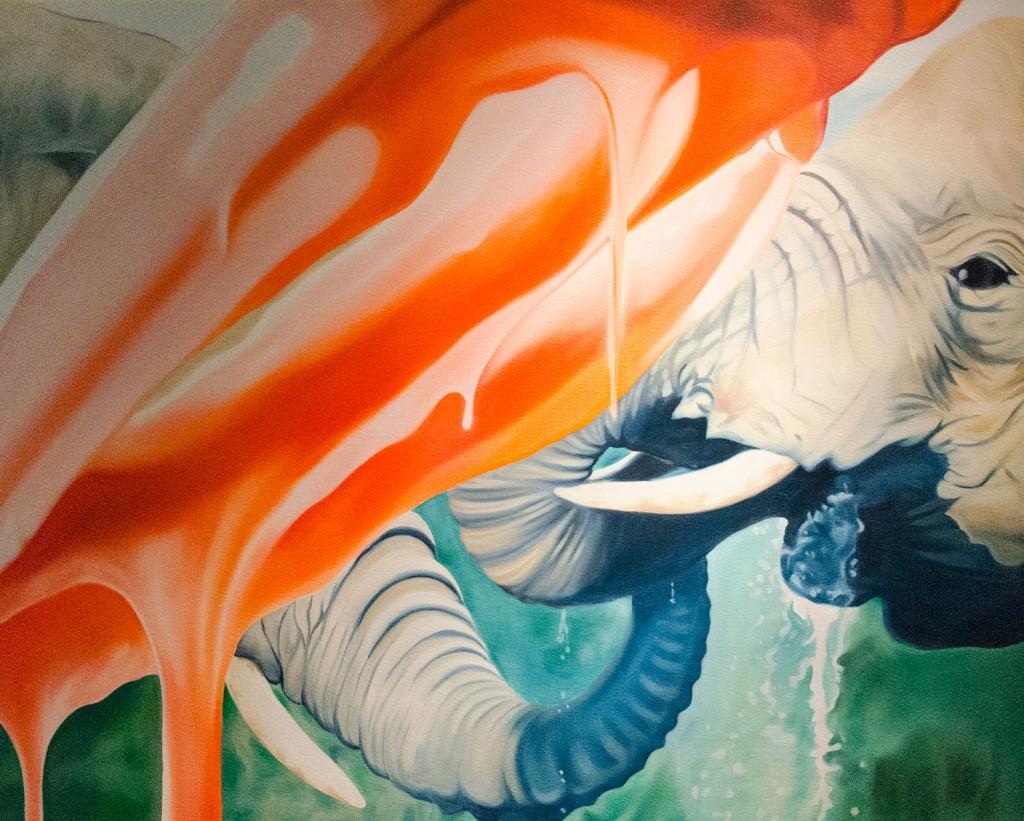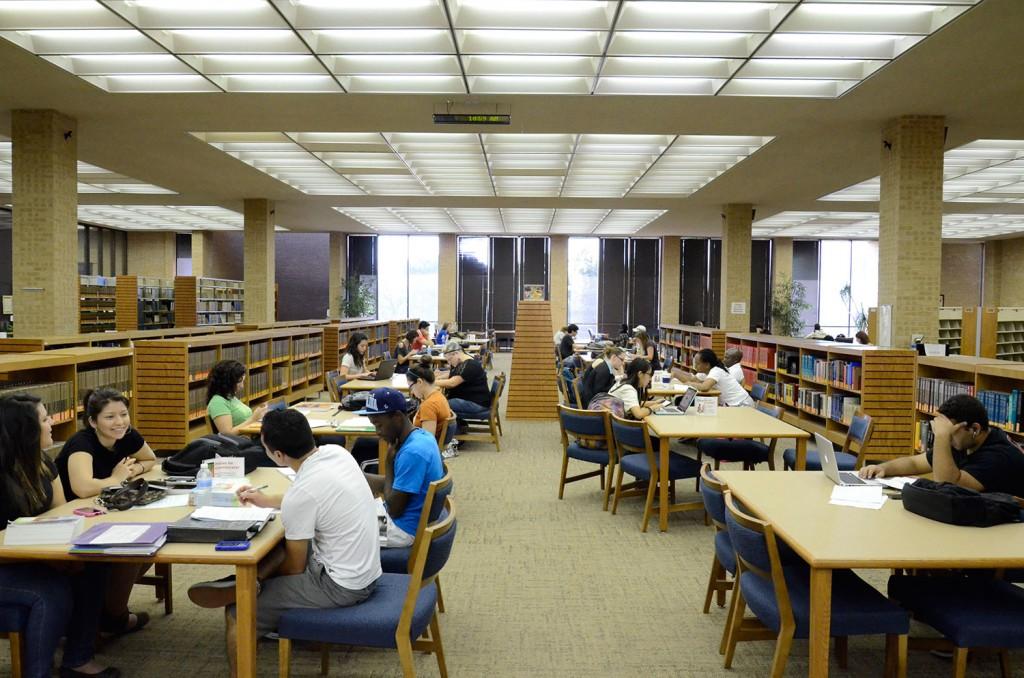By Kenney Kost/ne news editor
New biology lab sections on NE Campus are trying to engage both students and faculty.
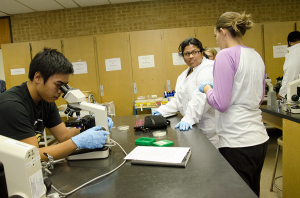
David Reid/The Collegian
Beginning this semester, four sections of the lab portion for BIOL 1406 will conduct a semesterlong experimental lab, said Jean Maines, NE associate professor of biology.
In a normal lab scenario, students show up and work on fixed slides from a pre-determined topic selected by the instructor. They are not connected week to week, Maines said. In the experimental lab sections, students are told to collect a water sample on the first day of class with the intent of cultivating a living organism to keep alive and study for the entire semester.
“The first night, the students collected their sample from a creek near campus,” she said. “We also noted GPS coordinates, water temperature and pH readings and what the environment was like.”
From there, students really do not know what to expect, Maines said. They will eventually choose from one of four organisms that are likely to grow once the sample is cultivated: algae, bacteria, fungi or protozoa. Students will note every detail of the experiment from start to finish, mistakes and all, she said. This gives them a reference guide to refer to later in the experiment. It allows them to see how every detail affects the organism and helps with troubleshooting.
Students will present the results at the end of the semester to fellow students, faculty and staff, Maines said.
Over the summer, Maines and biology professors Kristen Byrd, Marius Pfeiffer and George Aliaga conducted a trial run of the experiment. The intent was to test the viability of the project and get a sense of issues students might encounter throughout the project, Maines said.
“A long-term goal of ours is to build a body of work with the student research journals and the experiment results that the following semester’s students can reference and build upon,” she said. “We also want to integrate this information into other fields such as chemistry and math and have them conduct experiments from their perspectives.”
The underlying goal is to analyze how this type of setting influences the students, Maines said.
“The biggest thing is their investment,” Byrd said. “They are intrigued and are spending much more time in the lab.”
There is no right or wrong answer. The main goal is to let the students experiment and help each other out based on the research they conduct within their groups, Byrd said.
“That sense of discovery goes a long way to engage students in what they are doing,” she said. “We have them in groups of three and encourage them to help each other before coming to the instructor, and when they do come to us, we do not necessarily know the answer. We can, however, guide them in the right direction when they get stuck.”
NE chemistry major Cristina Castillo said she has been in the traditional lab setting, and while students do learn, it is mostly memorizing slides and answering concept questions. In the new setting, students learn things that cannot be taught in that type of controlled environment.
Students are forced to think on the fly, Castillo said. When they encounter a problem, they have to come up with the solution on their own. They learn the importance of tracking their research and results thoroughly as opposed to completing the assignment for the day, turning it in and never looking back on it.
“The only regret I have in taking this class is the time. Three hours is not enough,” said NE biology major Rafael Gonzalez. “Time goes by so fast when you are doing these beautiful experiments. And to me, that is what it’s about here. The instructors are giving us the opportunity to do what we love to do, to experience real science, which is why we are in these classes in the first place.”
















